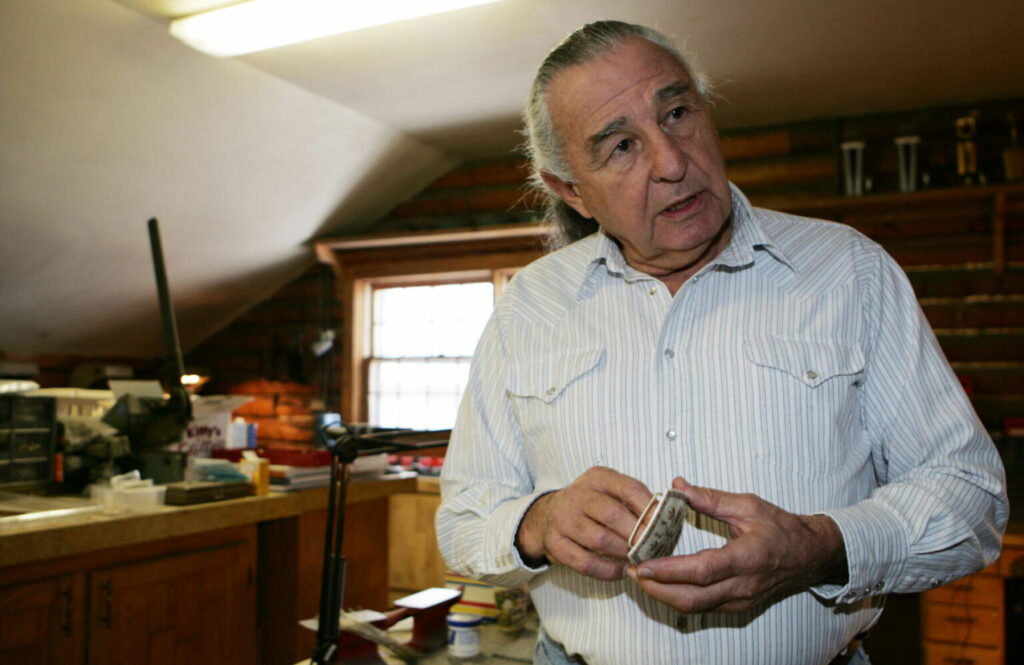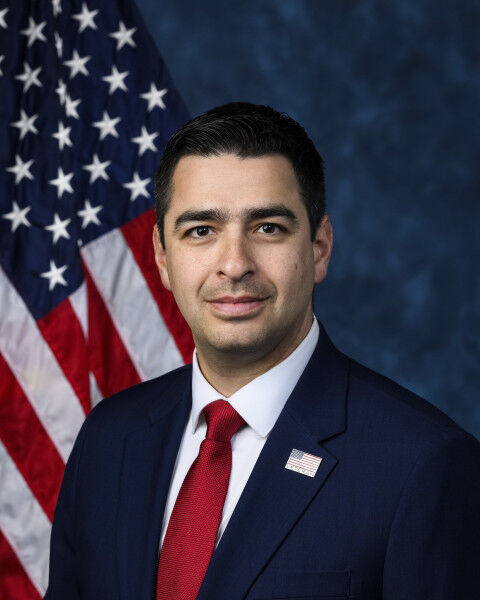Arizona’s governor outlines groundwater proposal with bipartisan support | OUT WEST ROUNDUP
ARIZONA
Governor outlines groundwater proposal
PHOENIX — Democratic Arizona Gov. Katie Hobbs renewed a push Jan. 30 to regulate groundwater in rural parts of the drought-stricken state, and she’s more optimistic this time that her efforts will find support in the Republican-controlled legislature.
Hobbs stood alongside local officials, rural Republican leaders and Democratic lawmakers to unveil her proposal to create new management areas to regulate groundwater pumping — long used by farmers and rural residents without restriction. She urged legislators to take swift action to reach consensus.
Local conservative leaders like Prescott Mayor Phil Goode urged Republicans in the legislature not to see water as a partisan issue.
“Last time I checked, there wasn’t Democratic water and Republican water,” he said.
Colorado meets compact obligations for Republican River, officials say
Travis Lingenfelter, a Republican who chairs the Mohave County Board of Supervisors, said Republicans and Democrats started at “polar opposite” places last year, but ongoing negotiations have brought the two sides “really close” to a middle ground.
Groundwater already is regulated in the state’s most populous areas — including Phoenix and Tucson — called active management areas, through a law passed in 1980 that hasn’t been updated since.
The legislation attempts to provide an alternative between active management areas and irrigation non-expansion areas that limit farming on new land. Active management areas have been criticized as too regulatory, and irrigation non-expansion areas have been called not regulatory enough.
WYOMING
Senators reject pro-CO2 bill
CHEYENNE — A bill to “Make carbon dioxide great again” and another proposing a five-year moratorium on wind and solar projects failed to make it out of Senate committees on Feb. 3.
Senate File 92, the “Make carbon dioxide great again-no net zero” bill, died for lack of a motion in the Senate Minerals, Business and Economic Development Committee. Before meeting its end, bill sponsor Sen. Cheri Steinmetz, R-Torrington, told the committee that the bill would assert that “the policy of the state of Wyoming is that CO2 is a foundational nutrient necessary for all life on Earth, and that it shall not be designated or treated as a pollutant or contaminant.”
The bill also would have directed the state not to pursue any “targets or measures that support the reduction or elimination of carbon dioxide, including any net zero targets,” Steinmetz told the committee. Further, the bill read that “plants need carbon dioxide along with sunlight, water and nutrients to prosper. The more carbon dioxide available for this, the better life can flourish.”
Todd Parfitt, director of the Wyoming Department of Environmental Quality, said that CO2 is considered a pollutant at the federal level, and cited concerns over how the bill could affect Wyoming’s primacy for air quality and water quality permitting.
Commission approves 'extremely aggressive' emissions cuts for midstream sector
The same day, the Senate Corporations, Elections and Political Subdivisions Committee voted 3-2 against a bill to establish a moratorium on solar and wind projects.
Bill sponsor Sen. Larry Hicks, R-Baggs, told the committee that even with the “extensive reversal of federal policies” prioritizing clean energy development happening under the Trump administration, state lawmakers must consider a moratorium in Wyoming to clearly understand the impact wind and solar energy development has had in the state.
Converse County Commissioner Robert Short said his body is the one that should make decisions about local projects, saying that there are multiple projects in the pipeline in his area. One solar project, according to company officials, will generate 500 megawatts and is slated to begin next year.
NEW MEXICO
High levels of ‘forever chemicals’ found near base
ALBUQUERQUE — Environmental regulators and health officials in New Mexico are warning hunters that harmful chemicals known to cause cancer in people have been found at record levels in birds, small mammals and plants at a lake near Holloman Air Force Base.
State officials say the findings are some of the highest levels documented in wildlife and plants worldwide based on comparisons with other published studies. Researchers contracted by the state tested muscle, liver and bone tissue in ducks, other birds and rodents as well as eggshells, algae and even skin shed by a rattlesnake.
The findings come as more states in recent years have been forced to issue health advisories to hunters and others as a result of “forever chemicals” known as PFAS showing up in wild animals that are hunted for sport and sustenance..
El Paso County to consider forever chemicals testing agreement with Air Force
PFAS chemicals, or per- and polyfluoroalkyl substances, are an increasing focus of public health and environmental agencies, in part because they don’t degrade or do so slowly in the environment and can remain in a person’s bloodstream for life.
In New Mexico, the concern centers on a lake that serves as the wastewater reservoir for Holloman Air Force Base, near White Sands National Park. While hunting is now prohibited there, state officials are concerned that the lake serves as a layover for ducks and other migratory birds that could end up being harvested elsewhere.
Contamination, mostly from firefighting foam used widely in training exercises, has been detected at hundreds of military installations across the United States.
UTAH
Hockey club narrows choice of name
SALT LAKE CITY — The Utah Hockey Club has chosen three finalists for the permanent team name it will adopt beginning with the 2025-26 NHL season.
The franchise will use a final round of fan voting to decide among the Utah Mammoth, Utah Hockey Club and, now, Utah Outlaws. The team on Jan. 30 announced it was switching out the unpopular Utah Wasatch options — a reference to the Wasatch Mountains — for Outlaws.
“For the team name, it’s clear that Outlaws should be in the mix instead of Wasatch, so we’re swapping it out,” the team posted on social media.
Colorado students push for official state mushroom, Agaricus julius, to be designated
Team officials backed away from including Yeti as a finalist after being unable to work out a coexistence agreement with Yeti Coolers to use the name in branding and merchandising.
“They have a unique trademark that allows them to prevent the use of the word Yeti or Yetis,” Smith Entertainment Group executive Mike Maughan said. “They made a determination for the sake of their brand that they didn’t want to enter into a coexistence.”
Fans in attendance at the next three home games will continue voting at designated iPad stations at the Delta Center to help decide the team’s name and logo.











